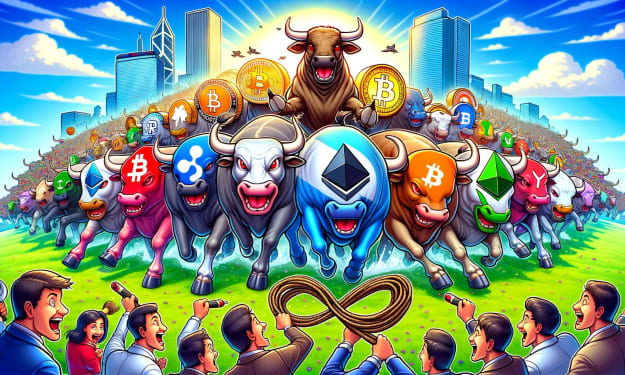Redefining The Gaming Industry with Play-to-Own Model
Published by: Oodles Blockchain

At Oodles, we envision a future in which blockchain development services facilitate real-world gaming economies and offer an entirely new framework for handling and allocating gaming asset ownership with models like play-to-own. It will offer an innovative value proposition that better balances the incentives of players and game operators.
Issues with Traditional Gaming Today
Most traditional games have simulated economies that centralized game operators manage. Most of the time, these simulated economies don't include a market where gamers can exchange goods or sell their possessions.
As players are not given genuine ownership of digital assets, the "Free-to-Play" or "Pay-to-Play" business models of traditional games fall short.
Game operators view the creation of a real-world economy in games that would involve true ownership as detrimental. It is because they would have to compete with their customers/players when the latter are permitted to resell their assets.
So, the question is whether there is a better way to handle the aforementioned issue. Indeed, we believe. For instance, the blockchain technology used by Upland's solution enables the creation of a new class of business models.
Play-to-Own Gaming Model
Play-to-own games are a paradigm change in the gaming industry because they combine traditional gaming's thrills and amusement with the opportunity to acquire real-world value through gameplay.
These games provide players with actual ownership of their digital assets while simultaneously building lively in-game economies and communities. They are built on the pillars of blockchain technology and non-fungible tokens (NFTs).
The difference between the play-to-own and play-to-earn models is negligible. For instance, the Upland game made the idea more well-known. The game enables its users to possess digital riches akin to that of their homes, and as they collect game awards, they can upgrade the state of their digital possessions. In the actual world, a car owner will almost always put in more time and effort to maintain his vehicle, whereas a renter typically doesn't put in as much.
What is the Distinction | Play to Own vs. Play to Earn
P2O emphasizes the ownership of in-game assets more so than P2E does (NFTs). The ownership of these assets is the main focus, and generating cryptocurrency tokens is not given much attention.
Whereas the primary goal of P2E games is to acquire NFTs to increase earning potential, the primary purpose of the P2O model is for players to acquire NFTs through gameplay.
Though the distinction may seem inconsequential, it represents a significant change. The main reason P2E games have issues is that the producers put too much effort into developing an in-game economy using cryptocurrency tokens, frequently at the expense of a satisfying gameplay experience.
One way to think about how these two differ is that in a P2O format, players will receive rewards for engaging in and excelling at the game. Maybe they just defeated a particularly challenging boss and received an uncommon sword NFT as a prize. They feel successful now and will keep playing to make more NFTs while having fun.
P2E games frequently place a greater emphasis on the game's income components. Here is where you'll see players spend a lot of money on NFTs to get better earnings or other unique benefits. Most of the time, players only purchase these NFTs to receive financial rewards; they don't care how much enjoyable a game is.
As players play towards having NFTs rather than purchasing one solely to make significant gains, developers can concentrate more on making P2O games that entice players to play again and again.
The Benefits of Play-to-Own Game Development
First off, these games provide a special chance for players to acquire rewards that have real-world worth. By giving users access to additional income sources, this model gives users more control.
Second, play-to-own games encourage thriving in-game economies that increase demand for digital products and services, enabling players to be inventive and creative.
Thirdly, by allowing users to trade digital assets and currencies, these games encourage the development of secondary markets, which in turn boost liquidity and present new investment possibilities.
Last but not least, play-to-own games encourage financial inclusion by exposing people to digital assets and blockchain technology, frequently acting as a gateway to the larger world of decentralized finance (DeFi).
Community and Social Elements
Play-to-own games transform how players interact with one another and their virtual worlds by fostering a strong feeling of social interaction and community building. The cooperative nature of these games, which frequently require players to cooperate to accomplish shared objectives, such as battling opponents, finishing quests, or taking part in in-game events, is a key component of this phenomenon. This spirit of cooperation encourages the growth of vibrant online communities where players can exchange strategies, barter items, and establish enduring bonds.
Furthermore, play-to-own games frequently have decentralized control systems that let players influence the growth and direction of the game through voting and consensus processes. Players become more devoted and invested as a result of this feeling of ownership and involvement, actively influencing the game's development and long-term success.
To bring players together and promote networking opportunities, real-world meetups, conferences, and events are part of the social and community elements of these games.
The play-to-own ecosystem thus goes beyond the bounds of conventional gameplay and unites the virtual and real worlds, weaving a rich social tapestry that promotes inclusivity, teamwork, and a sense of purpose. In the end, the play-to-own paradigm redefines the social and community dynamics that support the gaming experience in addition to changing the economics of gaming.
Why Develop Gaming on Solana?
Performance is the main focus of Solana's concept and construction. To allow in-game asset swaps at scale, a blockchain protocol must offer adequately fast speeds and consistently low fees.
Conclusion
In conclusion, as cutting-edge technologies and business models continue to reshape the landscape, the future of play-to-own games and the gaming industry is up for exciting developments. The play-to-own model is positioned to play a crucial role in reshaping the gaming industry for years to come by giving players a sense of true ownership, encouraging community-driven development, and opening up new economic possibilities.
For more information on play-to-own games development, connect with our skilled blockchain developers.
#HireSolanaDeveloper, #SolanaDevelopment, #SolanaBlockchainDevelopmentCompany, #SolanaBlockchainDevelopment, #BlockchainDevelopmentCompany, #BlockchainDevelopmentServices,





Comments
There are no comments for this story
Be the first to respond and start the conversation.